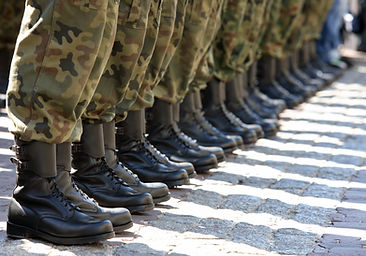
4 ways to harness your military experience for success in the civilian world
By Kelli Brewer
If you served your full commitment in the military, you may find yourself feeling confused about your future career and financial situation when you receive your discharge. According to a 2010 Journal of Preventive Medicine survey, approximately a third of recently discharged veterans experienced mental health problems, including anxiety, depression or difficulty sleeping. In better news, the large majority of the same respondents also found themselves both employed and engaged at work.
Depending on your MOS, you may feel either qualified or unprepared for a job in the civilian sector. What you may not realize is that many of the experiences that are common to the military likely gave you valuable skills for success.
zero8hundred is dedicated to supporting veterans through this challenging transition. Contact us today to find out more about how we can help you. But first, check out these helpful tips:
1. Become Familiar With Your Hard and Soft Skills
In the military, many of your qualifications, from range scores to degree points, were calculated and quantified for easy interpretation by your superiors. In civilian life, you need to be your own advocate. As you work on your resume, consider both your soft skills, including leadership experiences, professional bearing and attention to detail, and your hard skills comprised of demonstrable technical experience. If you need help converting your life experiences to your resume, try using an MOS converter online or talk to a friend who has successfully landed a job after leaving the military. And take advantage of organizations like zero8hundred which are dedicated to assisting veterans in finding post-military work.
2. Reinvest Your Savings
Whether you have contributed the majority of your military pay to a savings account or dedicated all of it to your thrift savings plan, your exit from the military is the perfect time to learn how to invest wisely. In many cases, The Military Wallet notes you can simply leave your thrift savings plan as is. For some, however, rolling your plan into an IRA can provide increased flexibility or growth potential. If you have collected a large amount of liquid cash during your service, it is wise to invest it in an appreciating asset or interest-bearing account. To do this properly, talk to a qualified financial advisor without a stake in the outcome of your investment choice.
3. Use Your Leadership Skills To Start A Business
Many entrepreneurs start businesses with considerably less experience in leadership than most former NCOs or officers. While the average business owner starts their new venture in their 40s, your military experience can give you a significant head start when it comes to the perseverance and self-sacrifice necessary for building a thriving organization.
Consider forming a limited liability company so you can legally separate yourself from your business venture. This can protect you from personal loss and provide you with numerous tax advantages. An LLC can also increase your flexibility, as you won't be restricted to the formal shareholder structure of most corporations. You can avoid costly consultations with a lawyer by using a formation service or filing yourself. Since different states have different requirements for creating an LLC, you should always check your state's regulations before proceeding with a plan.
4. Take Advantage of Your Education Benefits
If you served for over a year on active duty outside of a training environment and received an honorable discharge upon separation, CCK points out that you should qualify for the Post-9/11 GI Bill. The GI Bill covers all costs of public schooling and significant costs on private tuition for most degree levels, including doctorates. Of course, pursuing further education is a personal decision, but you should realize that free education is an opportunity few civilians enjoy.
As you reflect on your time in the United States' armed forces, you may grow to appreciate the value of your experiences there. Understand that this appreciation is an important part of your adjustment process. By taking the skills you learned and reinvesting in yourself, you may soon find your financial situation well ahead of your civilian peers'.

